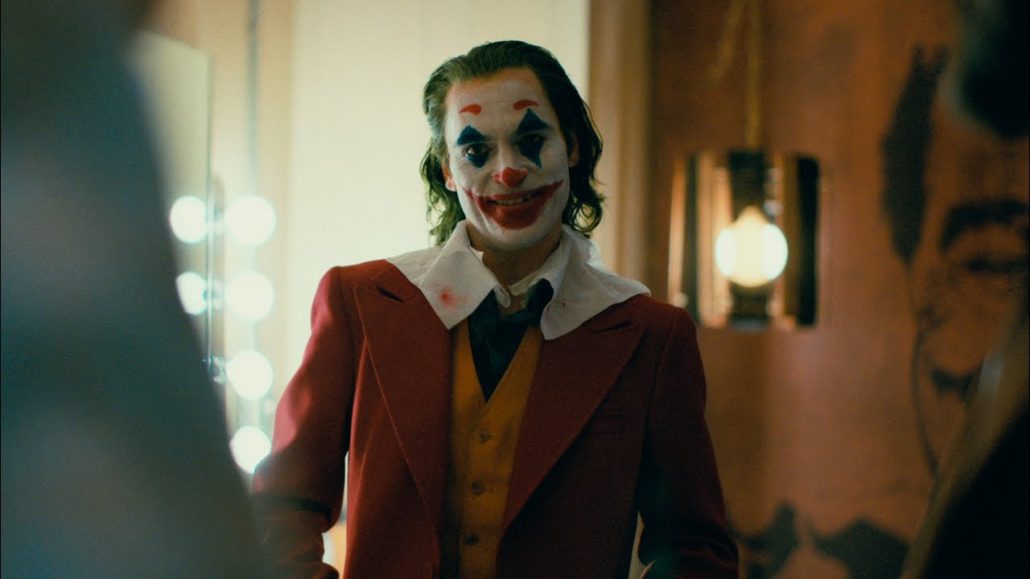Joaquin Phoenix is the ‘Joker’ for our cultural moment

Warning: This article contains several spoilers.
“What do you get when you cross a mentally ill loner with a society that abandons him and treats him like trash! I’ll tell you what you get, you get what you fucking deserve!”
Joaquin Phoenix’s Joker delivers this line before pulling the trigger on talk show host Murray Franklin (Robert De Niro) on live TV. The show’s feed cuts out and the camera pulls back to reveal the aftermath: an array of TV screens and telecasters speaking over each other. Their voices become noise. It’s the same sound as the media coverage of all the latest shootings, the sound of our collective attempt — and failure — to make sense of the chaos.
“Joker” has been thrown into the center of a month-long controversy, even before its wide release on Oct. 4. Critics have accused it of glorifying the kind of violence committed by incels — a subculture of sexually frustrated, estranged and often violent men. The film’s online description seems a deliberate allusion to these individuals: “Isolated, bullied and disregarded by society, Fleck begins a slow descent into madness as he transforms into the criminal mastermind known as the Joker.” Some fear that the movie will serve as a beacon for male rage, or even inspire another shooting like the one that occurred at the 2012 screening of “The Dark Knight Rises.”
The film follows Arthur Fleck, a clown-for-hire and aspiring stand-up comedian with a mental illness that causes uncontrollable laughter. He lives with his mother and idolizes Murray Franklin. His turn to violence begins one night on a subway, when he shoots three drunk businessmen who had harassed a woman sitting alone in the same car.
From here, the movie does not condemn Fleck’s violence. His actions trigger an uprising among Gotham’s disgruntled lower class, and clown-masked protestors take their frustrations to the streets with signs reading “Eat The Rich.” The film culminates with Fleck murdering Franklin, but even until the end, the camera does not vilify his actions. The second to last scene shows Fleck over a crowd of fellow clowns, raising his arms to their howling approval.
“Joker” is by no means the only movie that glorifies violence. Critics have compared it to Martin Scorsese’s “Taxi Driver,” a movie that celebrates its protagonist for committing multiple grisly murders. Moreover, how many modern action films can be said to condemn the violence that their characters commit?
There is something different about “Joker” that puts audiences and critics at unease with its treatment and portrayal of the protagonist. Perhaps it is the same thing that caused its rating to drop significantly from Europe to America, for it to win the Golden Lion in Venice, but attract widespread reproach among domestic critics. Perhaps the reason is that “Joker,” and the type of violence it depicts, hits too close to home for it to receive an objective review.
Many have pointed out that the Joker as a character represents the form of chaos that each generation most fears. Jack Nicholson’s Joker in the 1989 “Batman” targets businesses and threatens to topple the entire economy, a reflection of the era’s recession and political turmoil. Heath Ledger’s post-9/11 Joker in “The Dark Knight” is a terrorist who causes Batman to create a surveillance state in Gotham. In 2019, our Joker is a mass killer.
Like Fleck’s form of violence, the setting of Gotham feels strikingly familiar. Businessman Thomas Wayne (Brett Cullen) is running for mayor as a spokesman for the upper class. Fleck’s mother calls him a savior, while a protestor on the street holds up a sign that reads “Fascist Wayne is to Blame.” All the while, trash piles up in the streets because of a garbage strike, and the city is growing infested by a breed of super rats. The world seems to be wearing away at its edges.
At the center of this world is Fleck, our sympathetic, even endearing protagonist. He wants to pursue comedy, but he lacks the social awareness to make people laugh. He wants to get better, but his treatment is cut short due to a lack of city funding. He longs for human connection, but his oddities estrange him from others. The movie does not treat Fleck as condemnable, but should it have to? Moral ambiguity in cinema is not an inherent wrong, even when it strays into such troubling waters as humanizing a mass murderer.
The critics’ moral panic — that “Joker” might inspire another shooting — is terrifyingly fitting to the movie’s themes. The reception may have been more favorable if Phoenix had played a comic book villain, amoral beyond all relatability. The public in the movie prefers to see this version, the insane killer clown, on their newspapers’ front pages. None acknowledge — nor seek to acknowledge — the reasons for his atrocity. Fleck acts out because he is mentally ill, and he has been mistreated. Fleck kills because he has been given a gun.
Phoenix’s Joker is a disconcerting character, and maybe that’s because he reminds us of a real person. In the real world, the killers aren’t monsters in clown makeup. The real killer is human; he acts on human rationales. He might be sitting next to you.
Dillon Cranston is a sophomore writing about politics. His column, “Holding Center,” runs every other Wednesday.

